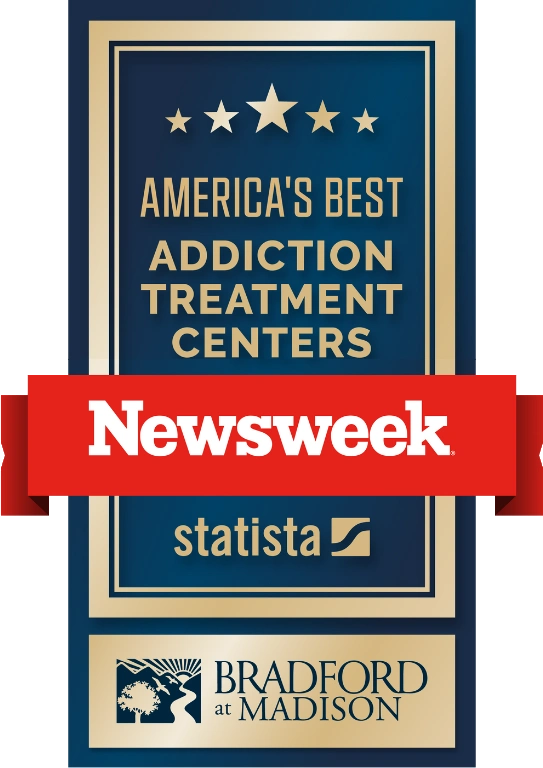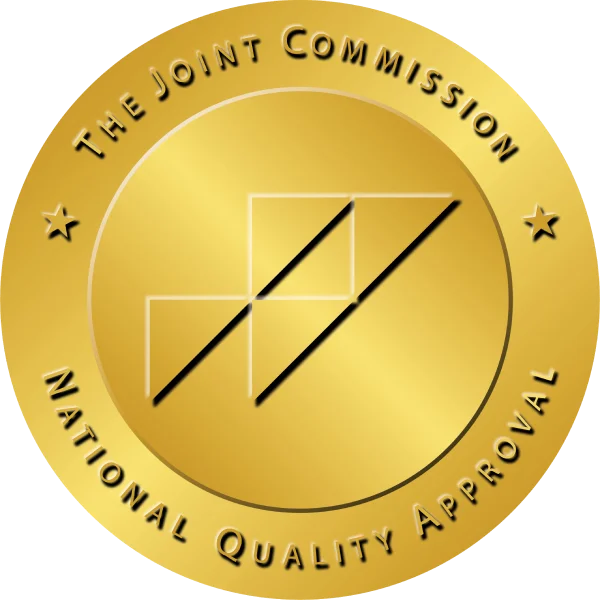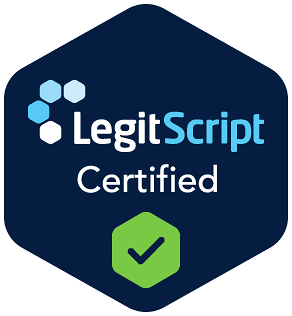Opioid Addiction Treatment: Recognizing an Opioid Addiction Problem and Starting Your Recovery

In 2022, more than 81,000 people died from opioid overdoses in the U.S. Although the majority of the deaths involved fentanyl, one of the most powerful opioids available, all depressants can be deadly because of how they impact blood pressure, heart rate, and respiration.
If you’re living with an opioid addiction, recognizing you have a problem and taking quick steps to get help can save your life. Addiction is a chronic and relapsing condition, just as many other illnesses are, so you have a greater chance of maintaining long-term sobriety if you turn to an opioid addiction treatment center for assistance.
With help from professionals who understand the challenges that substance use disorders pose, you can learn how to address the underlying cause of opioid addiction. Learn more about rehab for opioids and why getting help quickly is so important.
What are Opioids?
Opioids are types of natural, semi-natural, and synthetic drugs that derive from or mimic the substances found in opium poppies. Prescription opioids serve to alleviate pain after surgical procedures or offer relief for those suffering from illnesses or physical trauma.
These drugs bind to opioid receptors in the brain and spinal cord, interrupting pain signals from being transmitted. They are highly effective medications, but they also carry a high risk of dependence and addiction.
Why Opioids Are So Addictive?
Many opioid receptors are in the area of the brain known as the reward center. This part of the brain makes you feel good after performing certain actions, like socializing, eating, or having sex. Your brain rewards you with dopamine, which helps to relieve stress and anxiety while increasing pleasure.
When opioids bind with the receptors in the brain’s reward center, they cause an overwhelming sense of euphoria that confuses your system and lets it know that the drug is important for survival, prompting cravings. The more you use opioids, the more they begin to make changes to your brain’s structure.
Since the effects are so powerful, opioid receptors can become less sensitive, and your brain may even turn some of them off. When that happens, you don’t get the same sense of euphoria, prompting you to take higher doses. Increasing your dose can result in severe withdrawal symptoms if you abruptly stop taking the drugs.
Common Opioids: Prescription and Illicit

An opioid use disorder can occur as a result of a variety of drugs, both prescription and illicit. Oxycodone is a very common type. Its brand name is OxyContin, and it’s a semi-synthetic medication created to treat pain.
Hydrocodone is a similar medication that has the brand name of Vicodin and combines hydrocodone with acetaminophen. By far, however, the most powerful prescription opioid is fentanyl. It can be up to 100 times more powerful than morphine, and it’s behind the majority of opioid-related overdoses.
Heroin is an illicit opioid derived from the opium poppy plant, but it has no medical purpose. It’s often cut with other substances, making it difficult for people to know exactly what they’re taking. This makes it even more dangerous.
What Is Opioid Use Disorder (OUD)?
Opioid use disorder is a mental health condition that involves the compulsive use of opioids despite the negative consequences their consumption causes. It’s a relapsing disorder, meaning that it’s possible to start using drugs again even after years of being sober.
The complexities of all substance use disorders make it vital to receive help from an opioid recovery program. These can help you understand why the addiction occurred in the first place so that you can learn how to avoid relapses in the future.
Signs and Symptoms of Opioid Addiction
The first step to getting help is recognizing that you or a loved one has a substance use disorder. The symptoms and signs of opioid addiction include:
- Developing tolerance for the drug
- Consuming opioids in larger doses or for longer than prescribed
- Being unable to control drug use
- Using the drug in unsafe situations
- Experiencing withdrawal symptoms
- Continuing drug use despite negative consequences
You can also experience physical symptoms, including:
- Constipation
- Nausea
- Drowsiness
- Slowed breathing
- Weight loss
- Decreased libido
If you experience any of these, it’s likely time that you start searching for “opioid rehab near me.”
Dangers of Opioid Withdrawal and Risks of Detoxing Alone
When you begin the process of getting sober, you must first eliminate the drug from your system in a process called opioid detox. Often, people assume that they can just stop taking the drug cold turkey, but that can be very dangerous.
Once you’ve developed dependence on the drug, your body will struggle to function without it. Stopping your opioid use can lead to all manner of withdrawal symptoms. You can experience:
- Muscle aches
- Anxiety
- Insomnia
- Agitation
- Flu-like symptoms
- Nausea
- Vomiting
- Diarrhea
- Sweating
The symptoms can be so powerful that you can start using opioids again just to get relief. Because you will have lost some of your tolerance for the drug, taking your usual dose after beginning the detox process can put you at risk of overdosing.
If you experience any symptoms of opioid overdose, such as very slow breathing, extreme drowsiness, or constricted pupils, contact emergency services at once. An opioid overdose can be fatal.
Medical Detox for Opioids: What to Expect at Bradford at Madison
To get help for opioid withdrawal, reach out to us. Our Alabama addiction treatment center provides medical detox services. At Bradford at Madison, you can receive 24/7 medical monitoring to assist you as you eliminate the drug from your body.
Our opioid withdrawal treatment begins with a full health assessment to understand the severity of the addiction. We’ll take into account whether you have other physical or mental health concerns that could complicate the process and then decide on the right medications to help prevent the worst of the symptoms.
Medications Used in Opioid Detox and Long-Term Care
The most effective medications for opioid withdrawal are methadone, buprenorphine, and naltrexone. These are opioid agonists or antagonists. Agonists like buprenorphine bind with opioid receptors but produce a much weaker effect than opioids. They can also block other receptors.
Opioid antagonists attach to receptors and both block and reverse the effects of other opioids. Naltrexone is the most common of these. At our opioid rehab, we will carefully select the most appropriate medications and calibrate the safest dosages.
Residential vs. Outpatient Treatment for Opioid Addiction
Opioid treatment programs can offer inpatient (residential) or outpatient services. Residential opioid treatment involves staying for days at a time at the facility so that you can get immersive support. Inpatient care allows you to step away from your regular life and focus on getting sober.
If you’re not able to take time away from your family or work responsibilities, you also have the option of outpatient programs. These provide a high level of care but allow you to go home every night. They are most suitable for people who have a safe home environment and who don’t have easy access to opioids.
For most people, inpatient services will be the right option. They offer the intensive assistance necessary for managing opioid addiction.
Benefits of Inpatient Opioid Rehab at Bradford at Madison
Inpatient treatment programs provide the chance to step away from your daily issues and any stressors that could be triggering the addiction. You can benefit from very structured days that involve individual and group therapy sessions while being surrounded by people who are also focused on recovery.
Some people may have family members with active substance use disorders. It can be helpful to take some time away from them to stabilize.
Inpatient programs also allow you to receive support 24/7. This includes medical assistance if your symptoms are overwhelming.
Dual Diagnosis and Treating Co-Occurring Disorders With OUD
At our opioid rehab in Alabama, we offer dual-diagnosis treatment for those who are struggling with addiction and other mental health concerns. It’s very common for mental illnesses, such as depression or anxiety, to cause such disruptive symptoms that people may seek anything that offers relief.
Our dual-diagnosis programs tackle both conditions at the same time. Addictions and other mental health concerns tend to feed off one another, so it’s not a good idea to only treat one. By uncovering the underlying cause of the mental illness and substance use disorder, you can prevent relapses.
For people who have served their country and are experiencing post-traumatic stress disorder and addiction, our veteran programs can effectively address these conditions in a supportive environment.
Therapy for Opioid Addiction: Individual, Group, Family, and Trauma-Informed

At our opioid treatment center, we offer an array of therapy options to help you understand why the addiction developed. Individual therapy is crucial. We rely on behavioral therapies to show you how your negative thought patterns impact your moods and actions.
Many people who struggle with addiction have experienced trauma. By offering therapy that focuses on how deeply trauma can scar the psyche, our team can help you start healing from what you have suffered.
Group therapy sessions are another crucial part of our opioid rehab center. You get to hear from others who are struggling with addiction and build the kind of support system you can depend on. Additionally, we provide family therapy sessions to assist you in relearning how to communicate with your loved ones.
MAT and Its Role in Opioid Rehab
Medication-assisted treatment for opioids, also known as MAT, allows you to go through your recovery process without experiencing overwhelming cravings. With the right medications, you can stabilize and slowly break the hold that opioids have on you. MAT for opioid addictions allows you to focus on your therapy sessions instead of struggling with physical symptoms.
What Happens After Detox: Relapse Prevention, Peer Support, Sober Living, and Aftercare
Once you complete the detox process, you begin receiving therapy sessions that address the root cause of addiction. These sessions also help you develop relapse prevention strategies so that you can leave the program with more confidence in your recovery.
To assist you in the transition between active treatment and your regular life, we provide aftercare for addiction recovery. This includes an alumni program that keeps you connected with your care team. We can also help you find sober living options so that your home environment is a safe space for you.
Does Insurance Cover Opioid Addiction Treatment in Alabama?
A common question is, “Does insurance cover opioid rehab?” Most plans do cover treatment, though what services you’ll have access to can vary. Check with your insurance company to clearly understand what opioid addiction help services are covered.
Why Choose Bradford at Madison for Opioid Rehab in Alabama?
When searching for help for opioid addiction, you should consider attending a center that offers comprehensive treatment options. At Bradford at Madison, we can assist you from the very start of the process by giving you a safe place in which to go through withdrawal.
We offer personalized assistance that doesn’t see you as a collection of symptoms but understands just how difficult it is to ask for help. With our team by your side, you can receive ongoing monitoring and support that addresses your changing needs.
Whether this is your first time going through recovery or you’ve attempted it before, we can guide you with compassion and dedication. Let us help you begin your journey toward long-term sobriety.
Steps to Take if You or a Loved One Needs Opioid Addiction Help
The process of how to treat opioid addiction can seem overwhelming. It’s essential to take your recovery one step at a time, beginning with asking for help from professionals. At Bradford at Madison, we can walk you through detox services and assist you in finding the most appropriate treatment options.
If you’ve been struggling with opioid addiction, it’s time to get the assistance you deserve. Your life depends on it. Contact the team at Bradford at Madison to receive the ongoing support that can help you recover.



